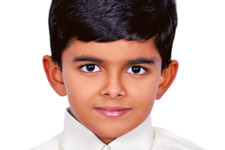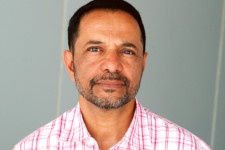
One billion people are going hungry, while the world wastes more than a quarter of the food it produces. This is a globally documented fact. Poverty and hunger are the twin evils of our society that drive most of the problems that the world faces. But, to many who live in a developed country, it appears as a remote issue that requires the occassional donation.
However, if www.foodbanking.org is anything to go by, then not paying sustained attention to this issue is going to lead to a warmer Earth.
Wasted food ends up in landills, breaks down into methane gas really fast, with the ability to trap heat 25 times more than carbon dioxide. And if the current summers being faced globally is anything to go by, this augurs for a most unpleasant future.
So, what are the things we can do to help, because individual action does make a collective difference?
Start by reducing waste, sharing more, buying local produce and helping food banks. We’re running a community report in-depth on this issue in the August 18 edition of the newspaper, in The Views section. It will offer various perspectives and ideas to help make a difference. Additionally, it is also the top of debate for next week’s Speak Your Mind. Do take a look and send us your feedback on readers@gulfnews.com or post a comment on our Facebook page. You can also tweet us on @GNReaders.
Coming back to the idea of food banks - what does it do? As per the The Global Foodbanking Network; “Food banks get food from where it is plentiful to where it is needed. Food banks rescue perfectly edible, nutritious, non-saleable food before it is wasted, and redistributed to feed hungry people through a network of social service agencies.”
Individuals, communities and companies - anybody who has a desire to help can set it up. They need to contact the organisation to start the process. An inspired idea to help people and our environment.
Gulf News reader Aniketh Kini is one such inspiring young person who feels the pain of hunger and has translated that into a campaign for his school that encourages other pupils from wasting the food in their lunch boxes. He wrote in his report: “I have observed a reduction in food wastage [post the campaign] among students at my school. They bring a smaller, more manageable amount of food, so that they can finish eating it completely.” Do we have the empirical evidence to understand if this is a widespread or longterm impact? The answer is no. But, the very fact that it has brought some change in mindset is an incredible measure of success. And, if we have many more young people joining in, the ripple effect will travel generations. I am happy to say that Kini has won first place in the Community Report Winner competition for July. His report, “Campaign raises awareness about the wasatage of food”, was published on July 30.
Second place goes to Habeeba Salim for her report, “Bus shelters urgently needed in Jafza area”, published on July 27. The article is extremely timely, especially keeping in mind the blistering daytime temperatures that people are suffering this summer. A bus shelter is imperative, especially to protect against damaging public health.
Third place goes to the report “Wash fruits, vegetables thoroughly”, by community reporter Firdos Poonawala, published on July 8. It talks about the importance of hygiene in storage of raw produce and its consumption. Quite often people might just give their fruits and vegetables a quick rinse, but by virtue of mass transport, public storage, and fertiliser use, it needs a more thorough cleansing. A simple process but it will protect you and your loved ones from probable infections in the longer run.
Congratulations to all the winners and to all the other community reporters who have helped make July a highly effective month for change in the community.
PROFILES
First: Aniketh Kini
Published on July 30, 2015
Aniketh Kini, a 10-year-old pupil based in Abu Dhabi, is an active member of the Emirates Environmental Group (EEG) and has participated in neighbourhood recycling programs.
He said: “Gulf News is a widely read newspaper across the region and therefore an ideal platform to convey the message to a large community. Since our reports are published in the newspaper and posted online, it is accessible by all and makes it easy for us to send it on to people across the globe.
“For my report, I received an excellent response, and I was encouraged for supporting a good cause. Many have advised me to give a brief speech at community gatherings and other schools as well.”
Second: Habeeba Salim
Published on July 27, 2015
Habeeba Salim, a Dubai resident, raised a relevant issue of the lack of bus shelters in the Jebel Ali Free Zone (Jafza).
She said: “Community reports are a good platform to get our message across to people and the authorities. For my report, I have received a good response from my friends, even those who are based in Abu Dhabi and they encouraged me to continue raising valid issus.”
Third: Firdos Poonawala
Published on July 8
Firdos Poonawala, a Dubai-based reader, has been writing community reports for more than four years now.
He said: “I wrote a report about hedges in Dubai dying due to a lack of water and upon publication, the authorities acted swiftly and the issue was rectified almost instantaneously. A similar experience occurred in 2012. This is why we take the time to write the reports. People who have read my reports and those who know me, call me and congratulate me. Dubai has given my family an opportunity and a fresh initiative to live life at its best. Does it not then become our duty to contribute, however little we can, to say thank you?”
— Profiles compiled by Rabab Khan/Community Interactivity Editor









